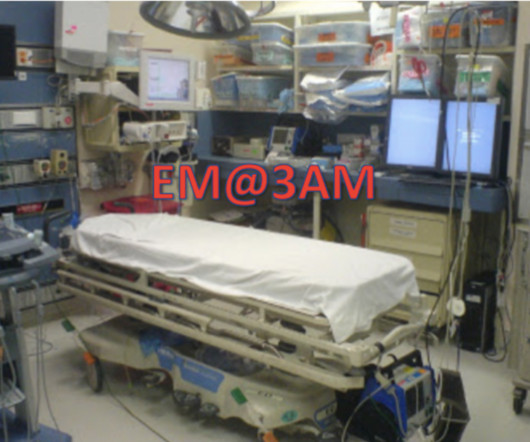EM@3AM: Leukopenia
EMDocs
JANUARY 25, 2025
Management is directed based on underlying etiology, but consider fluid resuscitation, antipyretics, and antibiotics as indicated. A 45-year-old outdoor enthusiast presents to the emergency department with fever, headache, myalgias, and malaise. Philadelphia, PA: Mosby; 2006:384-418. Infection and Inflammation.













Let's personalize your content